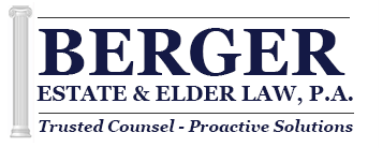Unlike nursing home stays, there is no requirement that Medicaid pay for assisted living, and no state Medicaid program can pay directly for a Medicaid recipient’s room and board in an assisted living community. But since assisted living costs roughly half the cost of a semi-private nursing home room, state officials understand that they can save money by offering financial assistance to elderly individuals who are trying to stay out of nursing homes, any way they can.
Currently, in 2017, 43 states and the District of Columbia provide some level of financial assistance to individuals in assisted living, according to the website Paying for Senior Care, which features a “State by State Guide to Medicaid Coverage for Assisted Living Benefits” that gives details on each state’s programs.
The level and type of support varies widely from state to state. Prevented from paying directly for room and board, some states have devised other strategies to help Medicaid recipients defray the cost of assisted living, including capping the amount Medicaid-certified communities can charge or offering Medicaid-eligible individuals supplemental assistance for room and board costs paid for out of general state funds. States typically cover other services provided by assisted living facilities. These may include, depending on the state, coverage of nursing care, personal care, case management, medication management, and medical assessments and exams.
In Kansas, KanCare is the managed care program for almost all Medicaid recipients, including those who qualify for Home and Community Based Services (HCBS) or the Frail Elderly (FE) waiver. These programs are designed not only to assist in paying for services provided to help individuals stay in their own homes or homes of loved ones, but also in their chosen assisted living community, as long as the community accepts Medicaid payments. HCBS/FE does not cover room and food costs, but will pay for “direct services provided to the customer in accordance with the Plan of Care” (kdads.ks.gov).
To qualify for one of these waiver programs, applicants must have care needs equivalent to those of nursing home residents. These waiver programs often have a limited number of enrollment slots, meaning that waiting lists are possible.
Eligibility guidelines include:
- Must be over 65 years of age
- Assessed by a medical team and determined to require assistance for at least 2-3 activities of daily living (description of these activities).
- Single applicants are allowed monthly income up to $2,205. However, individuals with income exceeding $729/mo will be responsible for a portion of their expenses. Married couple’s incomes are considered separately if only one is applying for Medicaid.
- Nonexempt asset limits for a single applicant are $2,000 and $4,000 for a couple, one personal vehicle, household items and home equity no more than $560,000. Exempt assets include retirement accounts of well spouse, irrevocable trusts, cemetery lots, term life insurance, prepaid funeral plan, and life insurance with a face value less than $1,500.
MO HealthNet is the Supplemental Nursing Care (SNC) program that offers financial assistance in Missouri for assisted living and nursing home stays. This program offers less financially than KanCare for assisted living, paying up to $292/mo. The cap is much higher for nursing home care and like KanCare often covers some of the difference between a determined individual contribution and the cost of care for Medicaid accepting communities.
Eligibility Guidelines include:
- Must be over 65 years of age and certified by the Department of Health and Senior Services (DHSS) for needing their desired level of care.
- Must live in an assisted living residence, it is not required the community accept Medicaid (all funding is provided by the State of Missouri).
- Applicants having less than $854/mo (single) or $1,129 (couples) of income receive benefits at no cost. Individuals or couples making over those limits must show medical expenses that make them “medically needy” or are responsible for some care costs.
- Nonexempt asset limits are $2,000 for a single applicant and $4,000 for couple, one personal vehicle, household items and home equity no more than $560,000. Other exempt assets include retirement accounts of well spouse, irrevocable trusts, cemetery lots, term life insurance, prepaid funeral plan, and life insurance with a limited face value.
Much of this article was sourced from Paying for Senior Care’s website (payingforseniorcare.com). For more details about these or similar programs in other states go to Paying for Senior Care's page for assisted living benefits, which includes a state-by-state guide to Medicaid’s coverage for assisted living.
If you or anyone you know is being burdened with the high costs of care, worried their available resources will quickly be depleted, and believes they may qualify for Medicaid, please reach out to us and call (913) 491-6332, visit our website berger-lawfirm.com or stop by our conveniently located offices at 11233 Nall, Suite 140 Leawood, KS 66211 for more information.


 RSS Feed
RSS Feed